
Part 2 - Understanding Stress
In this part, you will learn about:
- What stress is and how it affects your body
- A different way of looking at your health and wellbeing
What is stress?
Stress can be both good and bad.
Believe it or not, a little bit of stress can be a good thing.
1000s of years ago, the way our brain and body reacted to stress or danger was essential for our survival, this reaction is sometimes called the fight or flight response.
The fight or flight response is used to describe what happens inside us when our brain senses danger.
When our brain detects danger, the oldest most primitive part of it kicks into action, quickly telling us to either run away or to fight against the danger.
You may also have heard of the fight, flight, freeze, flop response, this is the same thing but as it suggests, there are 2 more possible reactions:
- Freeze – you may go tense and freeze to the spot
- Flop – is like freeze but your body goes floppy
These reactions happen automatically, before the modern thinking part of our brain can decide whether we are really in any danger or not.

The fight or flight response was really helpful for our ancestors. They had to rely on it to escape real danger in life or death situations, like running away from an angry sabre toothed tiger!
These days, we still use it to keep ourselves safe but, all sorts of things that do not pose an actual threat to our life also trigger the response. Our bodies still react in the same way as they did all those years ago.
We face all sorts of stress, every day:
- Caring for someone
- Going to work
- Work deadlines
- Getting the kids to school
- Getting the kids home from school
- Financial worries
- Exams
- Relationship break ups
- Driving
- Moving home
- Going on holiday
- The list is endless…
What is the difference between good stress and bad stress?
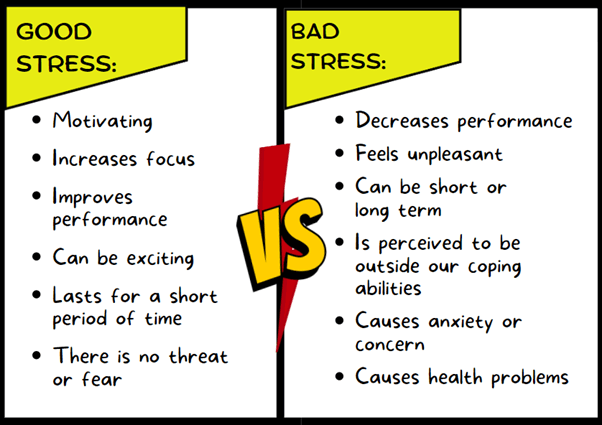
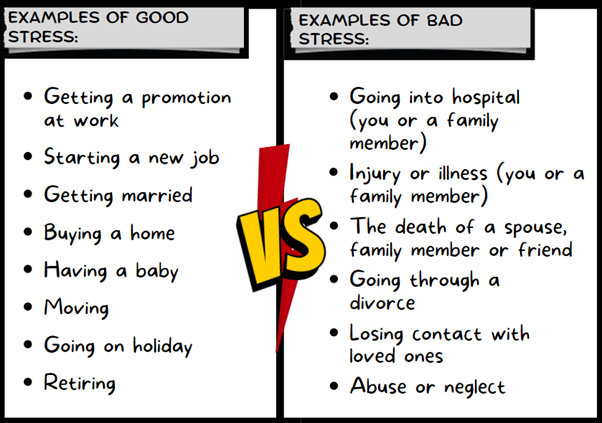
Over time, if we suffer from too much bad stress, it can become worse and turn into toxic stress.
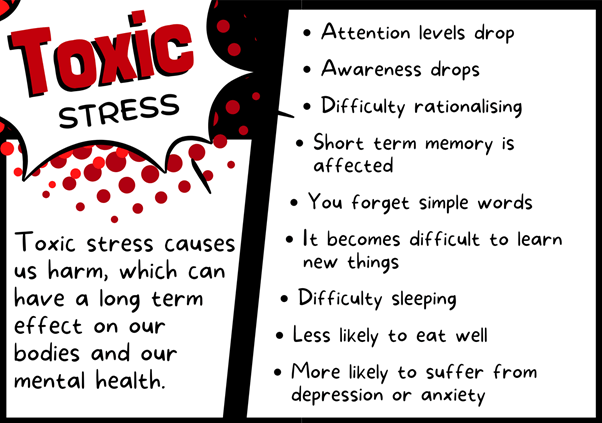
Here is a short YouTube video that explains the effects of stress on our brains.
“Knowledge is power” – Sir Francis Bacon, 1597
“Forewarned is forearmed” – Abraham Tucker, 1768
Understanding what is happening in your brain and body can help you to make sense of situations and prepare for bad or stressful things, when they happen.
It also helps you to know what stresses you out, so that you can plan and be ready for the next time it happens.
We asked carers to tell us what stressed them out the most, watch the video to find out what they said:
Take some time to think about what makes you feel stressed, write it down if it helps. You can use your personal logbook to make notes (page 1).
We will look at these stresses again, in part 4, when you will look at ways to manage stress.
A different way of thinking about your health and wellbeing
Common thinking – wait until you become ill or for things to go wrong before you fix it
All through our lives, we have times that we are in good health and times that we have bad or poor health.
While we have good health and feel good, we rarely think about the bad times. Usually, we wait for something to go wrong and then we go to the doctor and ask them to cure us.
Most people think that we can only be healthy and happy if we are completely well and have nothing wrong with us:
- no illness or disease
- no stresses
- no unexpected difficulties
Think back to the pictures ‘your plan’ versus ‘reality’ that we looked at earlier.
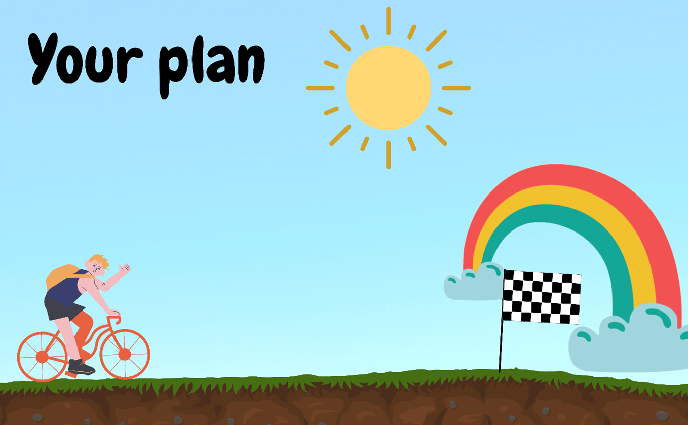
Thinking in this way is just not realistic and it sets us up for disappointment.
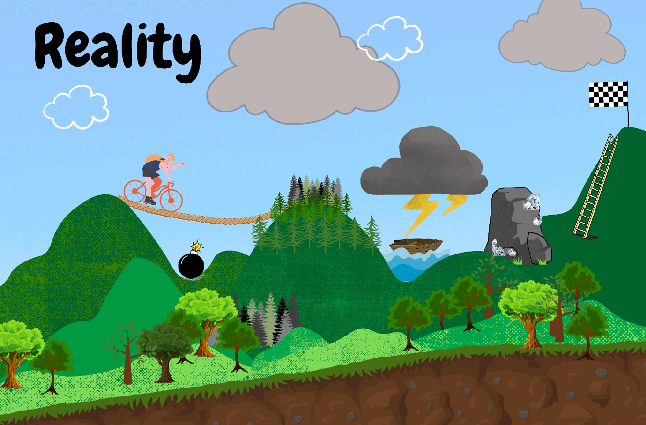
In reality, life is full of ups and downs, times of good health and times of bad health.
You will be glad to hear that if we accept this reality of life, there is a different way for us to think about our health, which is more realistic and can improve our wellbeing at the same time.
A different view – focus on the things that support our health and wellbeing
Think about your health as a sliding scale that you are constantly moving up and down, between good health and bad health and you can be at any point in-between.
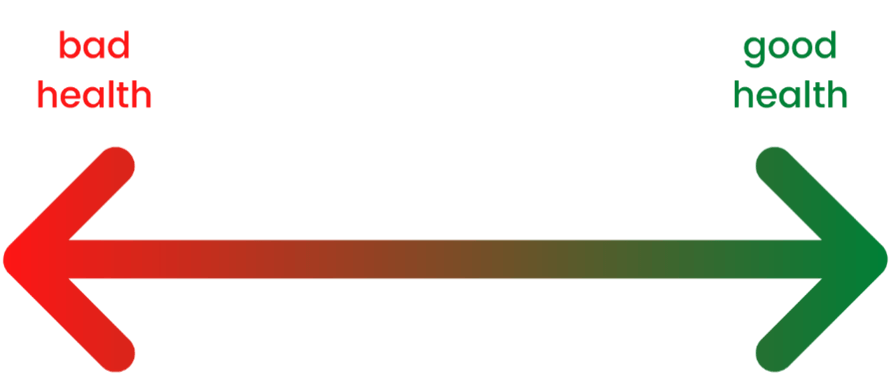
If we accept that over the course of our lives, we will:
- have times of good health and times of bad health or even a bit of both;
- face challenges;
- and have obstacles thrown in our way that we cannot control.
We can prepare for the bad times and can even learn how to live well with bad health.
By focussing on living well, despite life’s challenges, you can improve your general wellbeing, boost your resilience, and manage your reality.
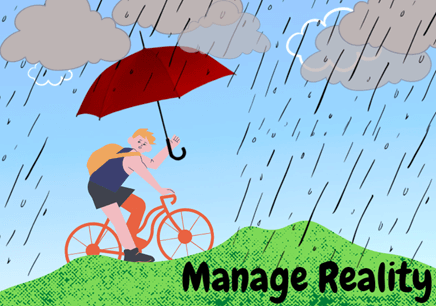
Part 2 summary
In this part, you learned about:
- What stress is and how it affects your body
- A different way of looking at your health and wellbeing
In the following parts, we will look at ways to help you focus on your wellbeing and how, with practice, you can better prepare yourself to deal with life’s challenges.
